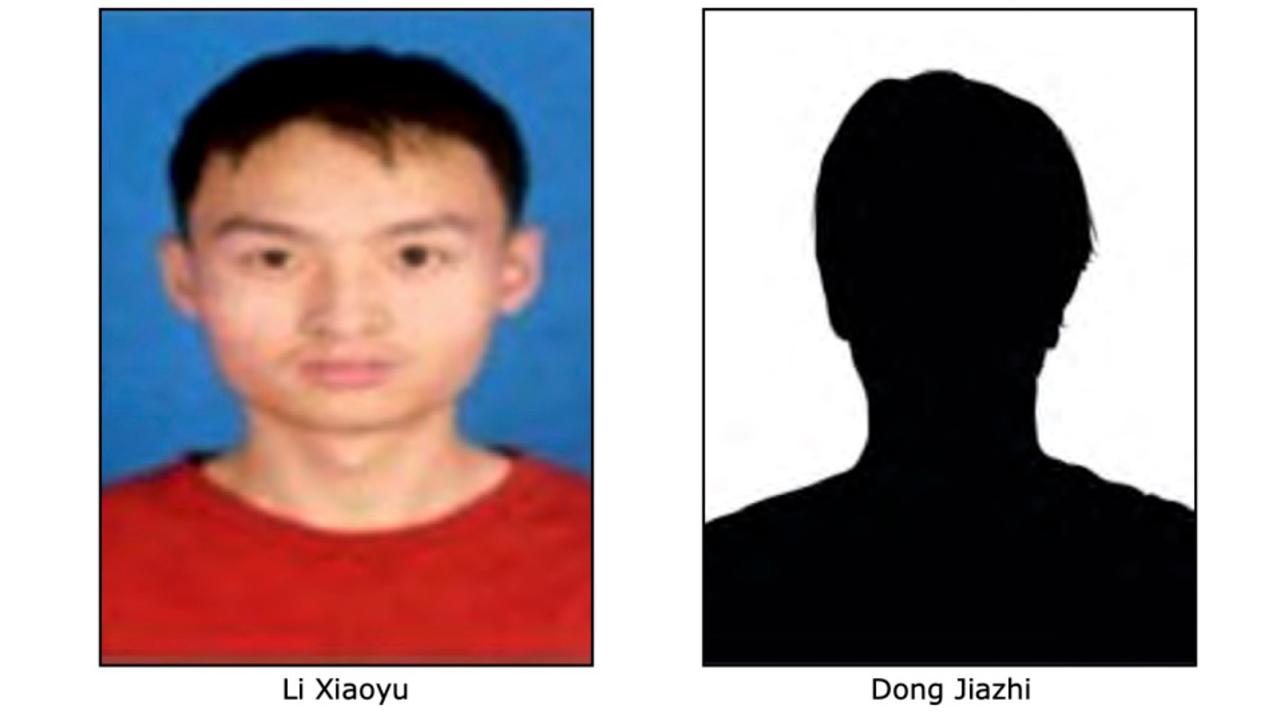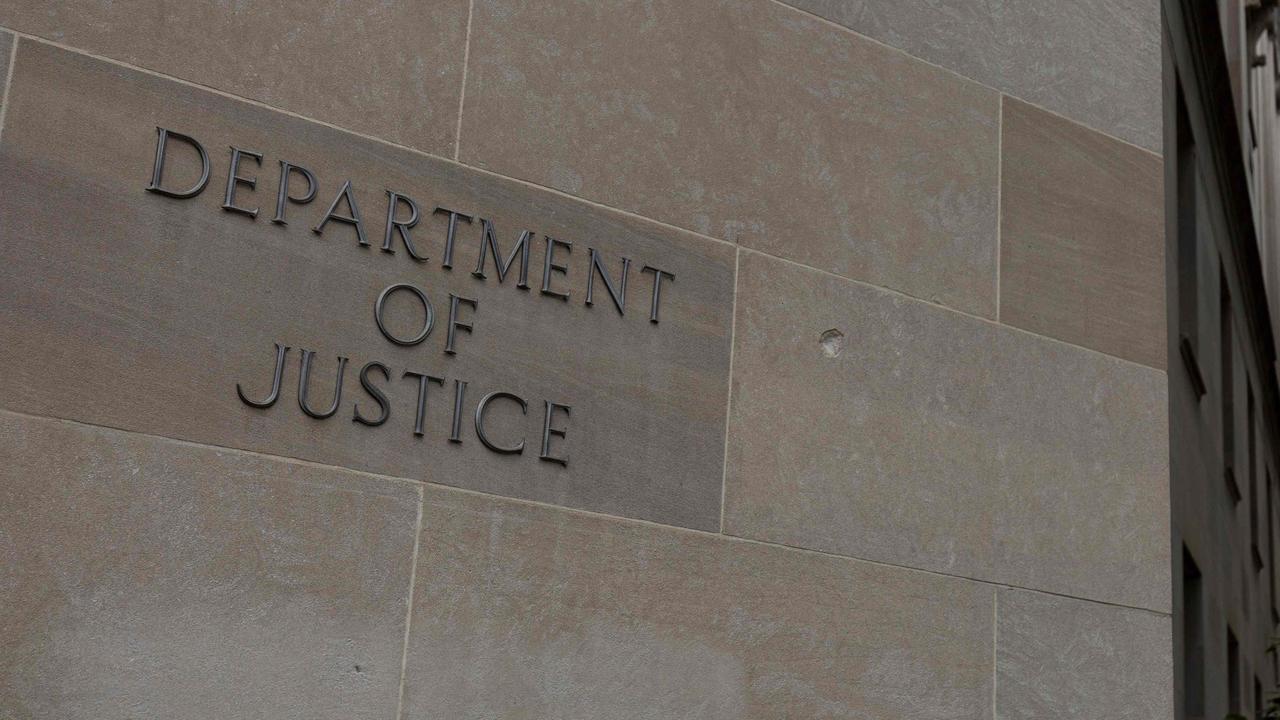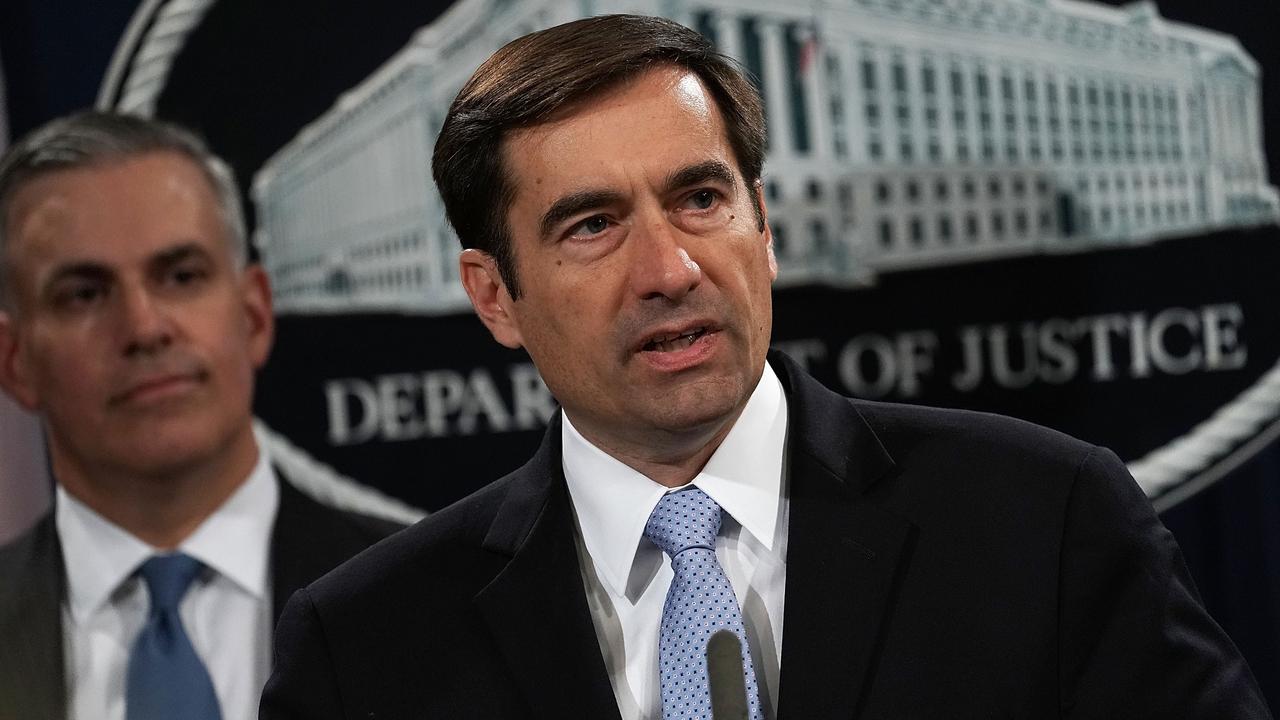FBI charge Chinese hackers who targeted COVID-19 research
Two accused Chinese spies have been charged for a decade-long hacking campaign, but it’s unlikely either will face consequences.
The US FBI has charged two Chinese nationals who they allege are spies who stole terabytes of data over more than a decade, including targeting firms trying to find a cure or vaccine for COVID-19, and stealing data from an Australian defence contractor.
Documents filed in Washington District Court earlier this month accuse Li Xiaoyu, 34, and Dong Jiazhi, 33, of participating in a long-running (and ongoing) hacking campaign on behalf of the Chinese Ministry of State Security, which targeted more than 10 countries, including Australia.

RELATED: Russian intelligence ‘hacked virus vaccine’
In June last year, 320 gigabytes of data, including source code, engineering schematics, and technical manuals, were pilfered from an unnamed Australian company.
In January this year the pair allegedly compromised the network of an unnamed Australian solar energy company.
The pair were former classmates at an electrical engineering college in the central China city of Chengdu, and allegedly used the skills they learned there to target the computer networks of high-tech manufacturing companies across a variety of fields including medical device engineering, software development, renewable energy and pharmaceuticals, beginning in at least September 2009.
“More recently, they researched vulnerabilities in the networks of biotech and other firms publicly known for work on COVID-19 vaccines, treatments and testing technology,” the recently unsealed indictment reads.

RELATED: Stark warning: ‘Warfare has changed’
They’re also accused of hacking military programs and networks, as well as stealing details of high-powered microwave and laser systems by hacking defence contractors.
The pair allegedly stole intellectual property and trade secrets worth hundreds of millions of dollars.
They’re also accused of using what they allegedly stole to blackmail the companies involved.
Li has been specifically accused of emailing a target demanding $US15,000 ($A21,000) in cryptocurrency to not reveal its stolen source code.
The pair also allegedly targeted non-government organisations and individual dissidents, clergy, democratic and human rights activists in the US, China, Hong Kong and elsewhere.

RELATED: China’s message in cyber attacks
“The activities outlined in the indictment are concrete examples of two concerning trends: First, and one we’ve seen for some time, China is using cyber-enabled theft as part of a global campaign to ‘rob, replicate, and replace’ non-Chinese companies in the global marketplace,” US assistant attorney-general of national security John C. Demers told the press on Tuesday.
He said the second trend is “one that is perhaps less appreciated by the public and international partners”.
“China is providing a safe haven for criminals who, as in this case, are hacking in part for their own personal profit but willing to help the state,” Mr Demers said.
He said many of the targeted industries were ones outlined in China’s 10-year plan for building its local technology industry.
“While the plan calls for an innovation-driven approach, cases like this one show it is as much a road map to theft as it is guidance to innovate,” Mr Demers said.
“The indictment shows very clearly that no country is immune.
“Any country with a successful company or industry must be on guard and prepared to protect itself.”
While the FBI has managed to identify and charge the two men, it’s unlikely either will face any consequences.
The two are still in China, which has no extradition treaty with the US, and neither country feels like doing the other any favours at the moment.



